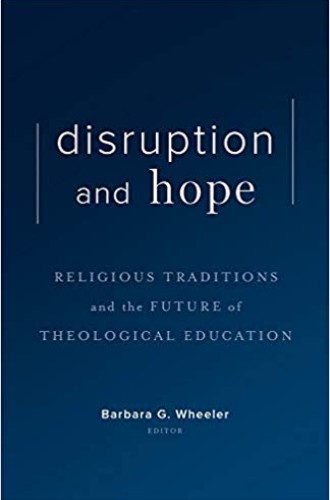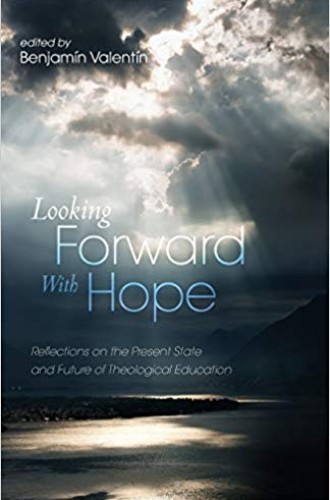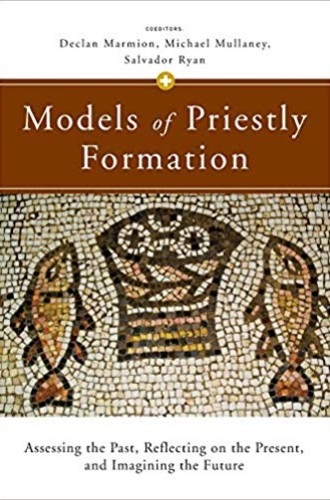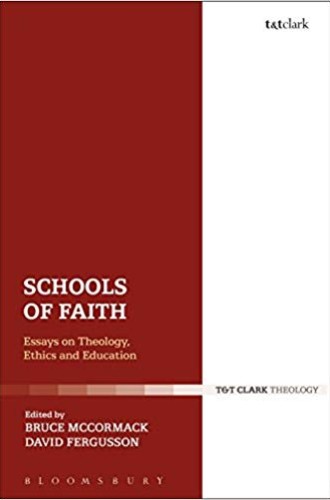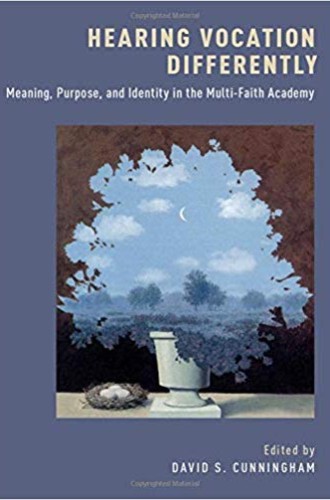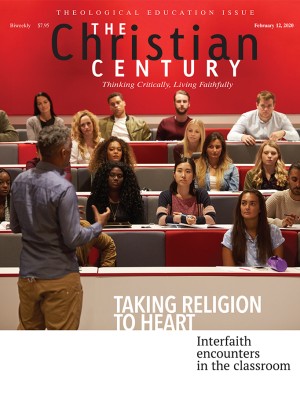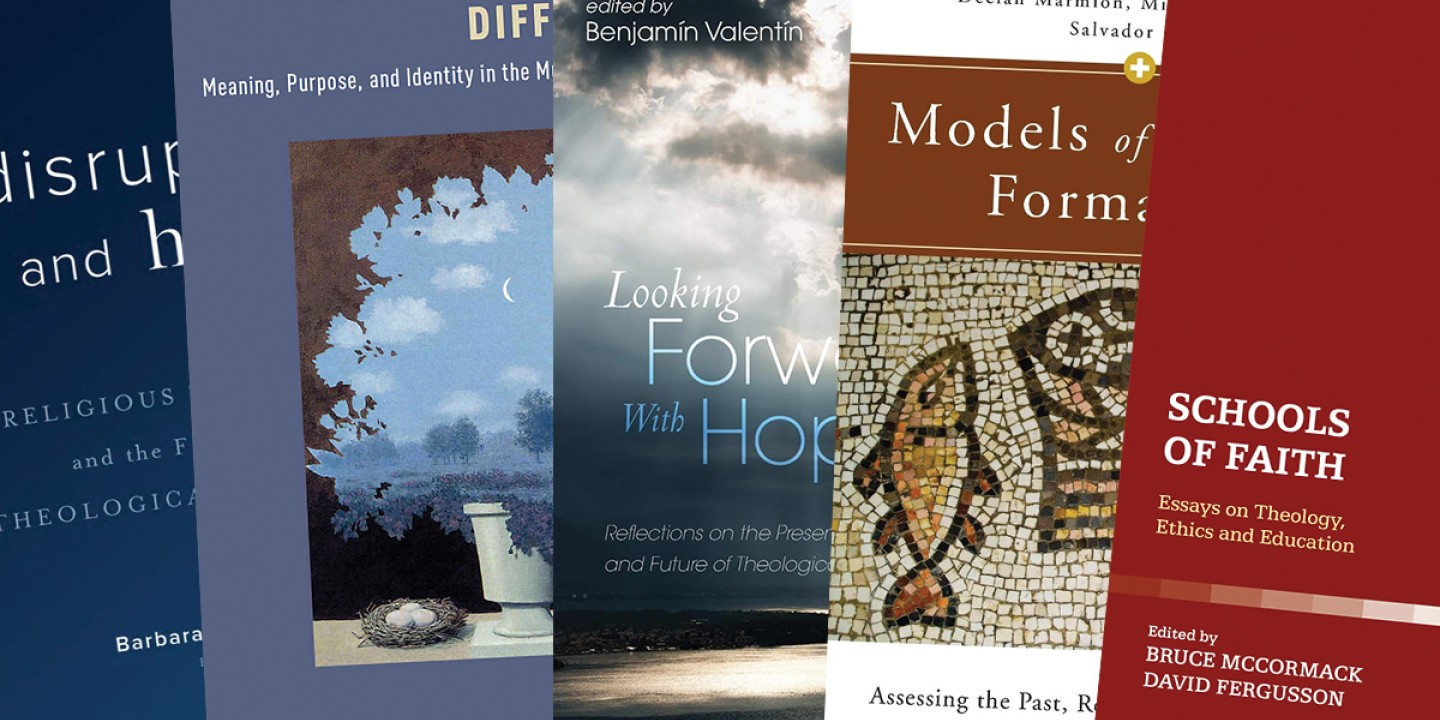
As the shape of theological education shifts, scholars are putting their heads together to describe the altered landscape and understand its challenges. Some of the most exciting new books in theological education are volumes of essays from multiple viewpoints that reflect the nature of this ongoing collaboration.
“Theological schools are about ideas, big ideas that begin with the love and grace of God, continue with the goodness and justice of God, and end with hope in the mercy of God,” writes Daniel Aleshire in the afterword to Disruption and Hope: Religious Traditions and the Future of Theological Education (Baylor University Press), a collection of essays edited by Barbara G. Wheeler, who founded the Auburn Center for the Study of Theological Education. Aleshire directed the Association of Theological Schools for two decades, and this collection of essays in his honor seeks to address some of the biggest questions the ATS asked under his leadership—questions prompted by demographic shifts in Christianity, loss of cultural trust in institutions, and financial pressures on seminaries. The six contributors to the book struggle with these topics while explicitly drawing on their own deepest theological commitments. The result is a rich set of reflections representing a variety of perspectives, from Catholic to Lutheran to evangelical to multifaith.
Read our latest issue or browse back issues.
In Looking Forward with Hope: Reflections on the Present State and Future of Theological Education (Cascade), editor Benjamín Valentín gathers the wisdom of nine scholars representing a variety of faith traditions and social locations. From Sharon Welch to Willie Jennings to Nancy Ammerman, the contributors to this volume reckon honestly with the ways theological schools have unwittingly limited the scope of their mission—and thus their efficacy. They also propose models for changing this reality, some by telling the stories of new models enacted by particular seminaries, and others drawing more generally on broad-based research and theory. Former ATS director Daniel Aleshire captures the situation vividly in his essay, alluding to the calling of Abraham in Genesis 12: “it is not clear whether theological schools are going somewhere they have never been that holds great promise or if they are leaving a land of kindred and houses for a future of diminished possibilities.” Most of the contributors express at least some hope that theological schools can still head in the direction of promise.
Roman Catholic seminaries aren’t facing the same crisis that Protestant institutions face, but they too are struggling with questions about what it means to form people for pastoral ministry in a changing world. Amid declining seminary enrollment and decreased public trust in Catholic institutions across the world, a group of international priests and scholars came together in Ireland in November 2017 to talk about challenges and promises in the training of priests and lay leaders. The papers from this conference are gathered in Models of Priestly Formation: Assessing the Past, Reflecting on the Present, and Imagining the Future (Liturgical Press). The essays, while focused on the Catholic priesthood, address larger questions about spiritual formation that face all people of faith. What does it mean to integrate a life of ministry with a rapidly changing culture? How does one discern and negotiate between an inner sense of calling and the voice of the Spirit? None of these questions have easy answers, the authors agree—nor is ministry meant to be easy. “The price or prize of formation is witness to the one priesthood of Jesus Christ,” writes Kevin O’Gorman.
Iain R. Torrance has served many roles, including minister in Scotland, New Testament scholar, educator, ecumenist, theologian, journal editor, and president of Princeton Theological Seminary. When he retired, David Fergusson and Bruce McCormack put together a Festschrift called Schools of Faith: Essays on Theology, Ethics and Education (T&T Clark). The dozens of chapters they collected are as wide-ranging as the interests of the contributors. Frances Young exegetes sections of 1 Clement to examine the relationship between Christology and creatio ex nihilo. “Panentheism is all the rage,” begins Oliver Crisp’s essay on Jonathan Edwards. Mona Siddiqui finds common themes in the letters of Rainer Maria Rilke and those of Abu Hamid al-Ghazali. Nigel Biggar looks at chaplaincy and just war theory. Kathryn Tanner reflects on baptism as a counter to the spell of neoliberalism. There are also several excellent essays about theological education, including Alison Jack’s reading of Marilynne Robinson’s Gilead as a model of spiritual formation, Craig Barnes’s reflections on the meaning of gravitas in ministry, and David Ford’s demonstration of the value of engaging in interfaith scriptural reasoning.
David S. Cunningham, who teaches religion at Hope College, has edited three volumes of essays on the concept of vocation in higher education. The latest, Hearing Vocation Differently: Meaning, Purpose, and Identity in the Multi-Faith Academy (Oxford University Press), gathers contributions from 13 scholars representing not only the three Abrahamic faith traditions but also Buddhism, Hinduism, and Sikhism. Each chapter concludes with a brief response from another contributor representing a different faith tradition. As in Disruption and Hope, these authors are committed to drawing deeply from their own texts, practices, and beliefs. The result is a diverse and stunningly honest group of reflections on the meaning and usefulness of the concept of vocation in a world where multiple identities intersect. The vulnerable, dialogical form of discourse the authors model in this book is precisely the type of communication that the leaders of institutions—from congregations to seminaries—would do well to emulate as they struggle to live out their calling in a dramatically shifting world.
A version of this article appears in the print edition under the title “Forming ministers.”


